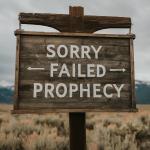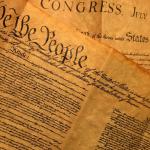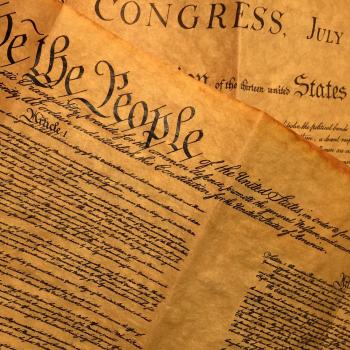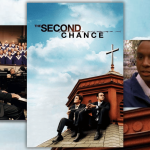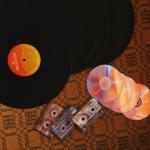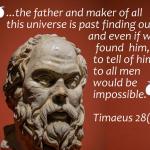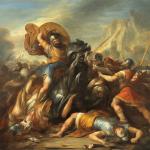Not everyone approaches the Bible in the same way. The way that a reader plunges into the text of the Bible will strongly affect what value the reader emerges with when re-gaining the surface.

While I was in the process of writing a little article about the Biblical Book of Revelation, one morning I joined my local on-line Bible study led by either the rector or deacon of my local Episcopalian congregation.
The subject was the apocalyptic Book of Ezekiel. The text was Ezekiel 38 and Ezekiel’s vision of the downfall of Judah and the destruction of the Temple, followed by a final victory of the Israelites over their enemies, a prophecy that was not fulfilled.
One woman about my age asked the deacon if the reference to an army “from the North” could be a reference to Russia or North Korea. He did not take that opportunity to explain why these apocalypses were written and glossed over the entire idea.
I realized at that moment that I needed to clarify for myself the different approaches to the Bible and the different things the reader expects to get from it. This would help to see more clearly the different kinds of readers…and non-readers.
What are the different approaches?
After giving this a good deal of thought, I have classified different approaches by naming the type of reader associated with each approach. I believe one way to classify these readers and non-readers is to make an attempt to speculate the outcomes that each category expects.
Author’s note: I am concerned here with the approaches I have observed among Christians, or at least, non-Jews. I do not pretend to be in a position to classify Jewish Bible readers. Of the local rabbis I have contacted, none was eager to give me much information. One flatly refused to talk with me. I do not want to put my Jewish friends on the spot, so we will confine this discussion to non-Jewish readers and non-readers.
- The true believer: one who believes that the Bible is the inerrant and perfect Word of God.
- The questioning believer: one who the Bible is not necessarily a historic account but provides a clear set of guidelines to faith and practice.
- The skeptic/scholar: one who has withheld belief and is striving to learn as much as possible about the Bible and the people who wrote it. The interest is historic, philosophical and anthropological and can be theological.
- The agnostic: one who has questions about the existence of Deity but has an interest in learning about the Bible and the people who wrote it.
- The atheist: one who does not believe in Deity but who has an interest in the Bible as history, mythology and literature.
- The incurious /apathetic: one who has no interest in reading and studying the Bible and considers it be “just stories.” This group is the only one who apparently sees no value in the Bible or in its study.

The true believer
This reader believes that the Bible is the only legitimate holy book and the only legitimate guide to faith and practice. This reader believes hat the Bible is univocal, that its text speaks with a single voice. There is no room or reason to question the text. Among Protestants, these readers are often seen as fundamentalists, among Catholics as the theologically ultra-conservative. This reader is typically active in his local church.
The questioning believer
This reader holds the Bible in high regard but realizes that any ancient group of texts, written and edited by human hands over a period of 3000 years will necessarily contain inconsistencies, contradictions and unanswerable questions. This reader typically has strong faith but sees that any belief in the text’s inerrancy is not reasonable. This reader is typically active in his local church.
The skeptic/scholar
This reader group contains a great deal of variety from active seminarians to professional scholars to lay people who want to know what the Bible really says and why it was written in exactly the way it was by the people who felt compelled to write it at all. The interest of this reader might be more theological or it might be more historic, philosophical or literary. This reader questions everything and everyone. he takes nothing at face value. If he is a person of faith, he understands that as he learns, his faith might evolve. He may or may not be active in his local church.

The agnostic
This reader has not made up his mind about the reality of a Deity. His interest in the Bible might be a personal quest to make sense of religion or it might be a handbook for questioning the same. His motives are likely personal and he has more questions than answers. He neither believes nor denies belief.
The atheist
This reader acknowledges no belief in Deity whatsoever. He believes in no god of any description and any interest he might have in the Bible will either be purely academic or purely to gain information to offer an argument against faith.
The incurious/apathetic
This reader (or in almost every case, the non-reader) believes that the Bible is “just stories.” He has no interest in learning about the Bible or the people who wrote it and certainly has no interest in its theologies or why it was written. This person may or may not acknowledge Deity. His approach might be described as “lukewarm.”
What kind of reader am I?
I place myself in the skeptic/scholar category. While I am not a professional scholar, my interest is to learn as much as I can in the time I have left about the Bible, the people who wrote it, the world they lived in and why the Bible was written at all. I am reading and absorbing professional Biblical scholarship from books, monographs, on-line resources like podcasts as well as attending my local Bible study and finally, in comparing notes with my son and research partner.
I believe that there is value in the Bible, first as an (admittedly suspect) source of historical data, but more as a window into the world in which it was written from sometime during the Late Bronze and Early Iron Age in Israel/Canaan/Palestine from possibly the 700s BCE to the period of the Babylonian captivity of Judah into the first century CE and the Roman period up to 90-180 CE for the Hebrew Bible Book of Daniel and the New Testament Book of Revelation.
For the faithful, the Bible brings comfort, and provides rules for how to live. While it speaks with many, many voices, the Bible does, in the end, provide two things that seem essential to its overall message: love God and love your neighbor whether he lives next door or in North Korea. Most religions have a similar core message. The problem is that all the other voices make it hard for some, and I am here challenging fundamentalists.
The Bible is not perfect, but if a person is reasonable, he can indeed see both the forest and the trees.
What kind of reader (or non-reader) are you? I would be grateful for a comment, question or criticism.
I am a public student of Biblical scholarship. Please join me on my quest to learn about the Bible, who wrote it and why it was written.



